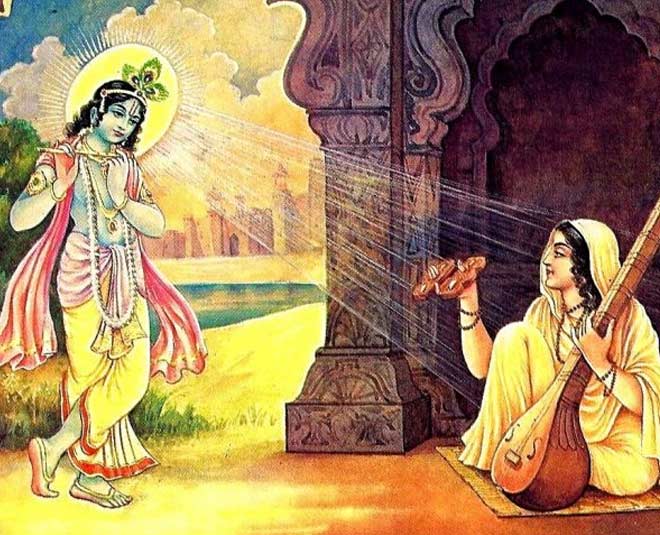
Introduction:
In the vast tapestry of India’s literary and spiritual heritage, one name stands out like a resplendent jewel – Mira Bai. Born in the 16th century in Rajasthan, Mira Bai transcended the societal norms of her time to become a celebrated saint-poetess whose verses continue to echo in the hearts of devotees and literature enthusiasts alike. Her life, marked by unwavering devotion and poetic brilliance, serves as an inspiration for generations, embodying the essence of love, faith, and rebellion against social constraints.
The Mystic Journey:
Mira Bai’s life unfolded against the backdrop of the Rajputana kingdom of Mewar, where she was born into the royal family of Ratan Singh. From a young age, Mira exhibited a spiritual inclination that set her apart from the conventions of the aristocratic society she was born into. Rejecting the opulence and worldly pursuits that surrounded her, she found solace in the divine, particularly in her intense devotion to Lord Krishna.
Her journey, both spiritual and poetic, began when she received a small statue of Krishna. This divine gift became the focal point of her devotion, and Mira Bai’s compositions, known as “bhajans” or devotional songs, started flowing like a sacred river. Her verses, composed in the Rajasthani language, became a poignant expression of her deep and passionate love for Krishna, transcending the boundaries of societal norms and expectations.
The Sublime Poetry:
Mira Bai’s literary contributions are a testament to the depth of her spirituality and the richness of her poetic expression. Her bhajans are characterized by a unique blend of simplicity and profundity, where she uses the language of love to convey her devotion to Krishna. Each verse becomes a metaphorical journey, where earthly desires are left behind in pursuit of a divine union.
One of Mira Bai’s most famous compositions is the bhajan “Payoji Maine Ram Ratan Dhan Payo,” which beautifully captures the essence of surrender and devotion. The verses speak of the priceless treasure of Lord Rama that Mira has attained through her unwavering love and dedication.
Her poetry also reflects a sense of defiance against societal norms and expectations. Mira Bai, often at odds with her royal family due to her devotional practices, fearlessly proclaimed her love for Krishna, breaking the shackles of societal conventions that sought to confine women to predefined roles. In doing so, she became a symbol of spiritual liberation and a voice for those challenging societal constraints.
The Cultural Impact:
Mira Bai’s legacy extends beyond the realm of literature; it has woven itself into the cultural fabric of India. Her devotional songs, sung in various musical styles, have become an integral part of the country’s musical heritage. Artists across generations have interpreted and rendered her bhajans, infusing them with diverse musical influences while retaining the soul-stirring essence of Mira Bai’s devotion.
The Impact on Feminine Spirituality:
Mira Bai’s life and poetry also hold a special significance in the context of feminine spirituality. At a time when women were often relegated to the sidelines, she emerged as a spiritual force, challenging gender norms and societal expectations. Her devotion to Krishna was not merely a love story but a profound exploration of the divine feminine seeking union with the ultimate source of love and compassion.
Conclusion:
Mira Bai, the saint-poetess of Rajasthan, left an indelible mark on the cultural and spiritual landscape of India. Her life was a testament to the transformative power of unwavering devotion, and her poetry remains a source of inspiration for those on a spiritual journey. In the timeless verses of Mira Bai, we find not just a poetess, but a soul in communion with the divine, inviting us to embark on a journey of love, faith, and liberation. Her legacy lives on, echoing through the corridors of time, reminding us of the enduring power of spiritual resilience and the boundless nature of true love.